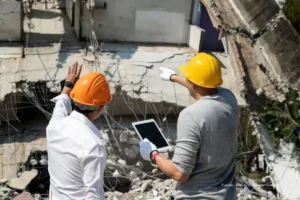Free Trade Zones: secure spaces in the logistics chain

Angélica Peña
Director of the Chamber of Free Trade Zone Users of ANDI
Security in the logistics chain and licit trade have been some of the most discussed topics in specialized forums.
At the recent meeting of the Latin American Alliance Against Smuggling, different topics were discussed, such as the good practices of free trade zones for the control of illicit trade.
On this last point, it was concluded that Colombian regulations are robust in terms of controls; free zones in Colombia not only follow the guidelines of the Organization for Economic Cooperation and Development (OECD), but also adopt best practices that allow them to be a safe link in the logistics and foreign trade chain.
You may read: South Korea’s economy: How did this Asian tiger industrialize?
The OECD Council for Combating Illicit Trade has made recommendations concerning the voluntary adoption of codes of conduct, access to statistical data and partnerships between authorized parties. It has also introduced the concept of clean free trade zones.
These free zones are characterized, according to this international organization, by giving unconditional access to the competent authorities, providing information on their activities, prohibiting activities without guarantees, keeping a digital registry on goods and services, ensuring access to digital records by the authorities and having a point of contact for the delivery of information, among others.
In Colombia, free trade zones comply with the above elements, that is why they are clean free trade zones. Not only do they provide unconditional access to the authorities, but it is mandatory for the DIAN to have offices within the free zone, all goods movements are recorded in computer systems and transmitted to the DIAN through an interoperability mechanism.
Guarantees are a necessary element not only for the operation of the free trade zone itself, but also for the foreign trade operations carried out by its users. For the users of the free trade zones it is mandatory to keep manuals for the prevention and control of money laundering, financing of terrorism and proliferation of weapons of mass destruction.
You may also read: What is the deep tech revolution, the phenomenon that Latin America and the Caribbean are taking advantage of?
Likewise, Colombian regulations provide for controls on the customs transit of goods from their arrival in the country until they enter the free trade zones.
In relation to voluntary controls and best practices, the free zones carry out due diligence processes and have made significant investments in technology that have allowed them to identify risks and cases of possible violation of the regulations, which they bring to the attention of the competent authorities.
According to information provided by the DIAN, from 2019 to 2021, 141 investigations were registered, of which 54 resulted in requirements and 37 in sanctions to free zone users. This means that, of the total number of incoming and outgoing goods operations, less than 5% merit an investigation by the customs authority, less than 2% resulted in the filing of sanctioning charges and a percentage close to 1% resulted in the imposition of a sanction.
In Colombia there are 124 free trade zones operating in 20 departments of the country, generating more than 152,000 jobs and accumulated investments of more than 46 trillion pesos. There are more than 1,000 companies, 90% of which are MSMEs, committed to the security of the logistics chain.
Free Trade Zones in Colombia: what are they, how many are there and what are their advantages for companies?





